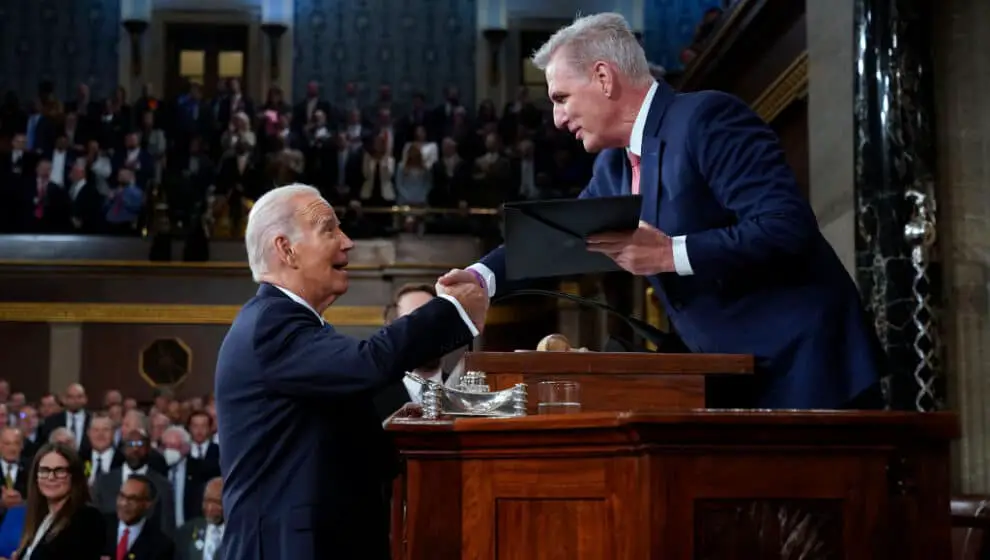Amid the ongoing pre-election season and debt-ceiling debates, a leading Wall Street figure warned about escalating political hostility and its effects.
Key Details
- Axios hosted its half-day Axios BFD: San Francisco conference on May 10, speaking with business leaders about important issues from ESG investing to the ongoing debt default crisis and the impact of the economy on business.
- TPG Capital CEO Jon Winkelried spoke about his experience with Goldman Sachs and what it was like transitioning the firm into a publicly traded company, as well as how he is currently operating his business in the current economic climate.
- He warned that the current political polarization between Republicans and Democrats is threatening to carry the country to the cusp of a debt default that could deeply harm the economy and the country’s political standing.
- When asked if the U.S. would go into a recession in 2023, he responded, “No.”
Why It’s Important
With less than 18 months until the 2024 Presidential Election, politics is once again beginning to heat up—with frontrunners President Joe Biden, former President Donald Trump, and Florida Governor Ron DeSantis beginning to take potshots at each other. In the meantime, Congress remains hotly split along partisan lines, with House Speaker Kevin McCarthy threatening for weeks to let the U.S. default if the president did not meet several spending cut demands.
The main thrust of the debt-ceiling debate is currently concluded. President Joe Biden and House Speaker Kevin McCarthy reached a tentative agreement on Monday to extend the debt ceiling limit until January 1, 2025, while making some modest spending cuts.
As Winkelried notes, the hostility between Biden and McCarthy is a bad sign of the overall direction of politics, that the country came within two weeks of defaulting. Had the U.S. defaulted on its debt, the U.S.’s creditworthiness would have been downgraded, resulting in long-term negative implications for the economy. It would have affected reserve dynamics around the currency. In the current high-interest rate environment, he argues it would have had more severe implications than the previous debt ceiling default debate in 2011.
“It scares me in a way. I think we’ve gone through this cycle several times, and the assumption is that nobody would allow the U.S. government to default. It seems insane, in alot of respects. I think the political process has gotten increasingly heated, in some respects less rational, because of polarization. I worry that there is perhaps more willingness to go to the bring. So I am more concerned than I was last time, a decade ago, when we went through this last time,” he says.
